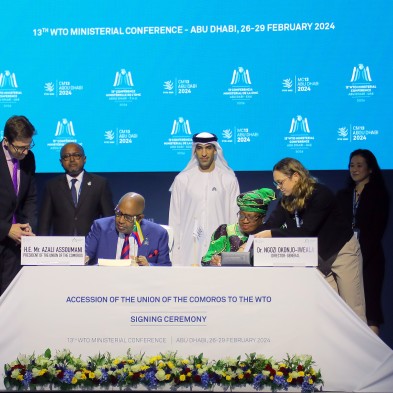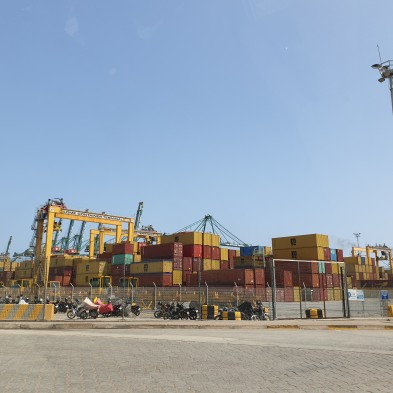The EIF partnership of 51 countries, 26 donors and eight partner agencies works closely with governments, development organizations and civil society to assist least developed countries (LDCs) use trade as an engine for development and poverty reduction.
Together, we leverage our collective know-how, reach and reputation to tackle the trade constraints of the world's poorest countries.
The EIF programme is supported by:
- a Geneva-based Steering Committee that advises EIF stakeholders and serves as a forum for transparency and information exchange, and comprised of all LDC partners, all EIF Donors and EIF Agencies;
- a Board that serves as the key decision-making body, with strategic, operational and financial oversight, and comprised of three capital-based LDC representatives, three EIF Donor representatives and members from EIF Agencies; and
- a Multi-Donor Trust Fund managed by the United Nations Office for Project Services (UNOPS) as the EIF Trust Fund Manager.
EIF’s unique contribution
Investing in trade for development
EIF works with partner countries to harness trade for economic growth, poverty reduction and sustainable development. We ensure domestic actions are taken to make trade work for economic prosperity, poverty reduction, food security, stability and peace.
Encouraging country ownership
We put partner countries in the driving seat and become their co-pilot, guiding them every step of the way. Together we identify sectors with export potential and help countries become more competitive in regional and global markets.
Acting as an honest broker
We act as an honest broker and convene key and influential actors – government ministries, civil society groups, donors and private sector – to reinforce partner countries’ capacity to make trade work for development. Together we develop a practical sustainable framework for creating wealth and security.
Financing at scale
Over the last 10 years, EIF has invested more than USD 220 million in trade-for-development initiatives with partner countries. We provide catalytic support for countries to seek additional funding from bilateral donors, multilateral development banks and private sector investors. EIF support has leveraged millions in increased national and international funding.
Working in vulnerable economies
We provide the intense level of engagement, planning and support required to build economic resilience among the world’s most vulnerable populations. EIF focuses nearly 40% of its work in small island countries and fragile countries.
Exchanging knowledge and innovation
We help partner countries exchange and access the knowledge, expertise and technologies that can stimulate domestic markets to move further up global value chains and reduce their supply chain constraints.
The Commonwealth Secretariat partnership with the Enhanced Integrated Framework builds on support we offer member countries, which are preparing to graduate from Least Developed Countries status or have recently done so.
Working alongside countries as they graduate, we develop frameworks to open up new horizons of diversification, creating employment and sustainable growth towards greater resilience with broader social and economic inclusion through global trade.
Working alongside countries as they graduate, we develop frameworks to open up new horizons of diversification, creating employment and sustainable growth towards greater resilience with broader social and economic inclusion through global trade.
The EIF stands out as the only multilateral Aid for Trade mechanism focusing solely on LDCs. It provides a unique opportunity for development of new trade policies and strategies where it is most needed. This is why Norway continues to be a strong supporter of the EIF and why we urge others to cooperate in any way they can.
The EIF fills a critical gap in the global Aid for Trade ecosystem. Its support for connecting small-scale producers and women entrepreneurs to world markets, raising the quality standards of exports, and for supplying digital readiness diagnostics, is instrumental in promoting inclusive and sustainable development in countries most deserving of assistance by the donor community.


